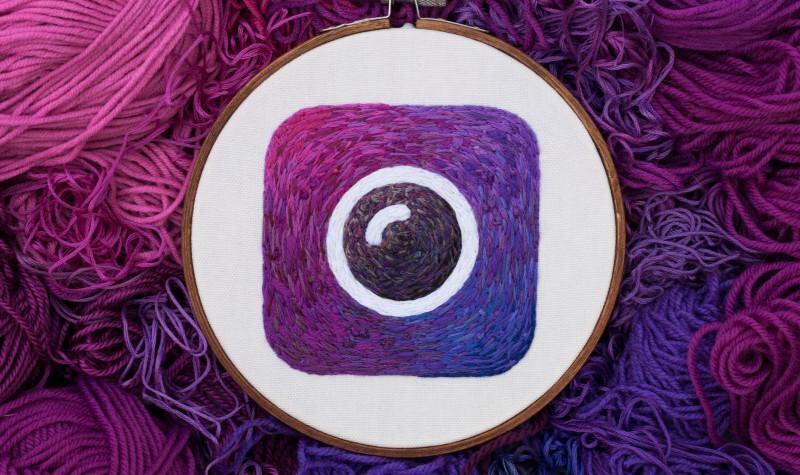Instagram has launched a new messaging app called Threads, which allows for faster image and video messaging with people on your close friends list.
The “close friends” feature was introduced by Instagram last year, and it allows users to choose which of their followers can view their stories.
With the new standalone app, which is available on iOS and Android systems, users can do much of what they already do on Instagram – share photos, videos and stories via messages.
One big difference is that Threads is more private, because it narrows your audience and restricts direct messages on the app to mutual close friends. This means that if someone is on your close friends list, but you're not on theirs, your messages will appear in their regular DMs (direct messages) on Instagram instead.
If you're trying to send a message via Threads to someone who does not have the app installed, the message will also show up in their Instagram DMs.
Speed is another difference. There are no filters available (so far), and users can choose to select eight favourites from their close friends list to be able to send instant photos and videos to. When you turn on your camera on the app, the avatars of these selected close friends show up at the bottom. Once you know what you want to shoot, you just click on a specific person’s avatar to take the photo or video, and the message will be sent to them instantly.
The app promotes itself on the idea of giving users more control over who sees their content and building connections to those they're already close to. It seems to be in line with Mark Zuckerberg's "privacy-focused vision", which he discussed in a Facebook post in March this year.
He wrote, “I believe the future of communication will increasingly shift to private, encrypted services where people can be confident what they say to each other stays secure and their messages and content won't stick around forever.”
However, one of Threads’ features can still pose privacy concerns for some.
With the status feature, which is not available on Instagram, you can share every move you make throughout the day via a status message that shows up on your Threads profile.
There are pre-determined ones: free, busy, bored, eating, studying, gaming or watching TV – all with matching emoji. Users can also create their own and must select a time frame for how long they will be doing the activity, ranging from one hour to four.
Concerns for privacy (and oversharing) come in with the "auto status" setting. To activate it, users will need to give Threads access to their location and certain phone information at all times, even when they are not using the app.
Based on location, movement, network signal and battery life, Threads can determine what you’re doing and post that on your status. It can tell if you’re at home, the airport, the beach, the gym, the cinema, a restaurant or cafe. It also knows when you’re “on the move” and can differentiate whether you’re in a car, on foot or on a bike.
With the auto status feature, Threads can also post about your battery life, whether you’re running low or charging.
Of course, this is an opt-in feature, and Instagram has clarified in a blog post that "Auto Status will not share your precise location with your friends, and when Threads sends location information to our server to look up locations, it's not stored there – this information is only stored on your device for a limited time. It is also deleted if you remove Threads."
Threads seems to be Facebook’s response to Snapchat, the popularity of which hasn’t seemed to wane for younger, specifically teenage, users.
It's not the first time that the social media company has tried to compete with the instant messaging app. In August this year, Instagram rolled out a series of AR-powered filters to rival some of Snapchat's, which had some popular gender-swapping and de-ageing ones. The inclusion of these filters reportedly brought in 9 million new users to the platform.
As Thread rolls out worldwide, Facebook puts its vision of a more privacy-focused social media experience to the test.






